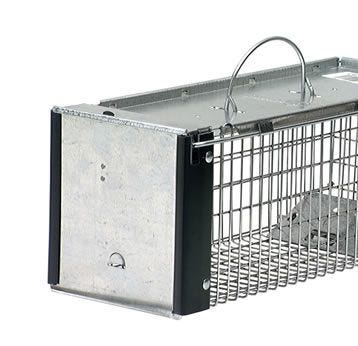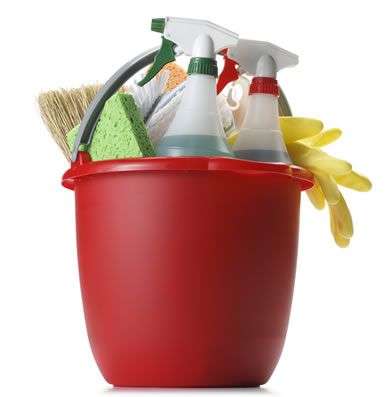Rat Trap Cage How To Set
1 Select a Alive Rat Trap

A live rat trap should be large enough so that the unabridged animal - including its long tail - fits inside. The best rat traps are small or actress-minor, depending on the size of the rats you want to catch. Choose from either i or ii-door models:
| ane-Door |
|
| 2-Door |
|
ii Decide Trap Placement

Rats travel along pathways similar walls and wires, and tend to use the exact same pathways time after time. The all-time location for your trap is longways confronting a wall closest to the damage.
Signs of rat harm include:
- rat debris
- holes in food/other packaging
- tooth marks on wood
- chewed wires, pipage or insulation
- grease or smudge marks on surfaces
- rat tracks
Place your trap on a level surface to avert disturbing the trigger mechanism.

3 Select and Position Bait
Bait selection and positioning are important elements of a successful capture:
- Peanut butter or dried fruit are peachy baits for both the Kingdom of norway rat and the roof rat.
- Rats are wary of human odour. Wear gloves when baiting your trap to avert transferring your scent onto the trap.
- Position the allurement in a way that will provoke the rat to fully enter and footstep on the trigger pan (see diagrams on the right).
For more expert baiting tips, read How To: Rat Baits »

iv Set Your Trap
When yous are gear up to catch a rat, open your trap door(s) to the set position. Each rat trap has a unique setting mechanism, so be sure to follow the specific model's instructions.
TIP: Fix your trap in one simple step with Like shooting fish in a barrel Set® engineering science.

5 Monitor Your Trap
Leaving a rat trapped in a muzzle for an extended period of fourth dimension is a danger to the rat as well as your home and family. Once a rat is trapped, information technology'south important to remove it from your home in a timely manner.

vi You've Caught a Rat!
- Information technology's very important that y'all wear heavy gloves whenever handling a rat to avert contact with the animal and prevent the spread of germs or diseases.
- If local laws let, release the rat at least 2 miles away
- Disinfect your trap with a bleach solution immediately subsequently you release the rat.

7 Reduce Rat Attractants
After removing rats from your home, prevent other rats from invading by reducing food attractants. Some actions to take include:
- storing all food in rodent-proof containers
- removing garbage and using tight-fitting lids on your trash cans
- keeping your habitation spotless, sweeping and sanitizing surfaces oft
- removing pet nutrient when your pet is not feeding
- cleaning up fallen nuts, berries, seeds, etc. in your yard
Expert Tips
- Unlike mice (who are very curious), rats tend to be neophobic - shy of new objects in their territory. Introduce your trap by "pre-baiting" information technology: position information technology properly (footstep 2), necktie the door(southward) open and place some bait inside. Allow your rats to go used to the trap's position, re-baiting periodically if necessary. After about a calendar week you lot can untie the doors and keep with trapping your rat.
- Wear gloves whenever handling a rat trap to avoid transferring your scent to the trap. A rat may be even more cautious of a trap if it carries man scent.
- Brand sure you are familiar with wildlife regulations in your area before trapping and relocating a rat.
- After removing the rats from your home with alive trap, go on them abroad by using an ultrasonic rat repellent.
Rat Trap Cage How To Set,
Source: https://www.havahart.com/how-to-trap-rats
Posted by: baileywitest.blogspot.com


0 Response to "Rat Trap Cage How To Set"
Post a Comment